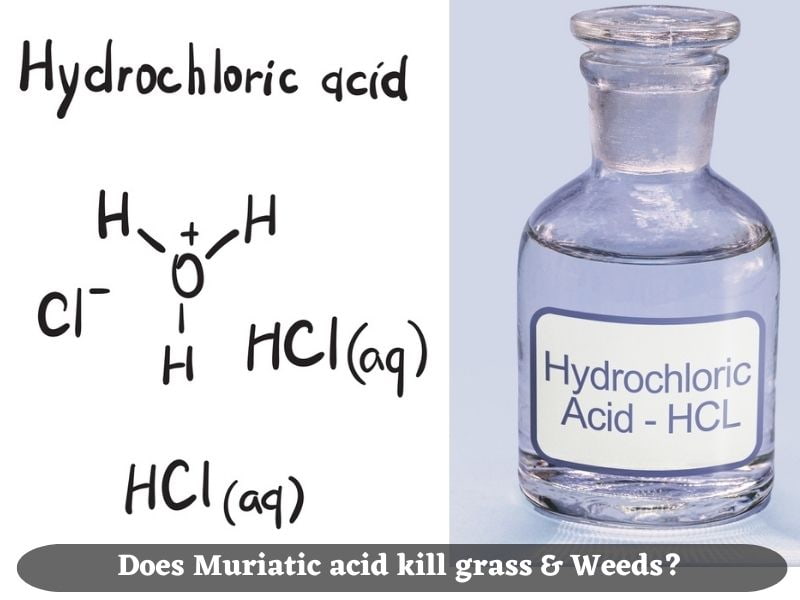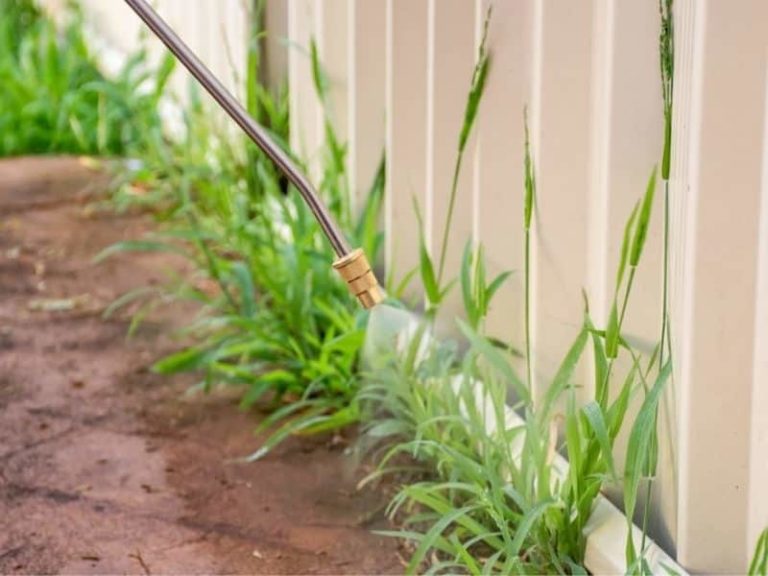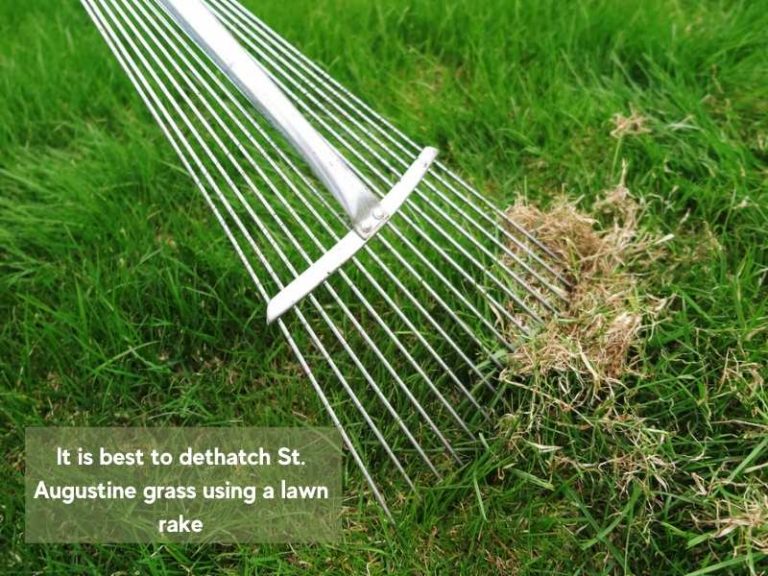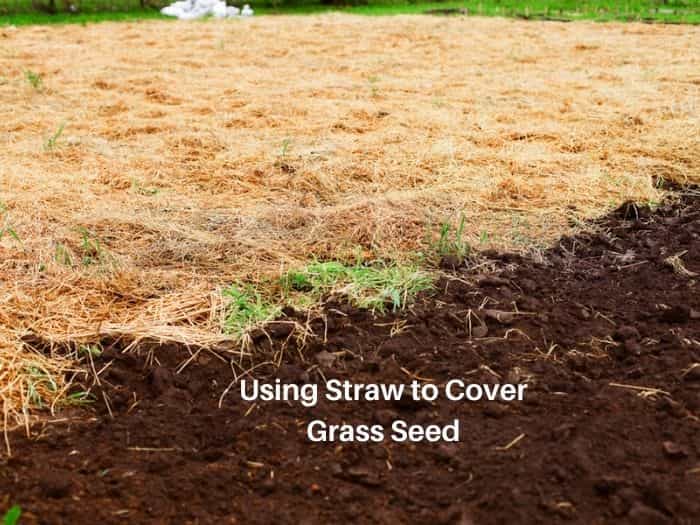Will Muriatic Acid Kill Grass and Weeds? (Tips & Precautions)
Muriatic acid is hydrogen chloride in liquid form. The acid has many uses in household cleaning, unclogging drains and toilets, but can use it to kill grass and weeds?
Muriatic acid will kill grass, weeds, and other smaller vegetation it touches. It wreaks havoc on plant roots if the spill seeps into the soil. Careful use can make it an effective weed killer, especially for unwanted growth in hard-to-reach areas. It has longevity on grass, and you should clean it up immediately to avoid extensive damage.
Undiluted muriatic acid is extremely harmful to plants. An accidental spill can do extensive damage to grass and other vegetation. However, it has its upsides, even in its potency, proper handling can give you neat walkways.
Can Muriatic acid kill weeds?
Muriatic acid kills any plant it touches, including weeds. You can use it in diluted amounts to kill unwanted grass and weeds. Handling it requires caution to avoid killing the grass and contaminating the soil.
It kills the weeds’ cellulose chain when applied, resulting in hydrolysis. The weeds turn brown and become brittle.
The Muriatic acid mixture kills pigweed, lambs quarter weed, range weed, and other small weeds.
This method of killing weeds may not be perfect because the solution might not get to the roots. Herbicides like Roundup are better at killing weeds and will not affect the soil pH like Muriatic acid.
Does Muriatic acid kill grass and weeds?
Muriatic acid is acidic and kills grass about 24 hours after application. Muriatic acid breaks down the cellular walls of plants. Since it’s such a thin substance, it splashes and can cause extensive damage to short grass and other plants. It’s especially lethal on short grass since it’s likely to coat the entire blade. Long grasses have better survival chances from a Muriatic acid spill.

It causes chemical burns on the grass. It would be ill-advised to use it frequently to get rid of weeds. Overapplication of the acid will cause it to burn through the roots and kill the grass and other vegetation around the grass.
Only use it as a last resort in controlling weeds because of the potential damage to turfgrass.
Apply lime powder or use baking soda mixture (neutralizing agents) to counter the effects of Muriatic acid spills.
How to kill grass and weeds with Muriatic acid
Muriatic acid is a tricky substance to use on the lawn, it has pungent smell, toxic fumes and thinness that make it easy to splash.
Here is how to use Muriatic acid on the lawn to avoid personal harm and unnecessary damage.
Wear protective gear
Despite being a neutralized acid, Muriatic acid is acidic and splashesquickly. To avoid harm to your hands, eyes, and feet, wear protective clothing such as acid-resistant gloves, goggles, a face shield, and a mask.
Mix it and use it in a well-ventilated area. Repeated acid inhalation is hazardous, as it can cause respiratory irritation.
Warning: Eye contact with Muriatic acid causes eye problems like conjunctivitis. Skin contact with the solution can cause skin burns and dermatitis. Also, Muriatic acid may cause irreversible damage to the mucous membranes and gastrointestinal organs if swallowed.
Dilute the acid
As a precaution always add Muriatic acid to water and not vice versa. Adding water to Muriatic acid will cause a violent reaction resulting in corrosive splashes and bubbles. You should also avoid pouring the acid into an empty container.
Here is how to dilute Muriatic acid:
- Mix one part Muriatic acid with ten parts water in an acid-resistant glass container
- Add and mix slowly with cold water while stirring to prevent hotspots. The reaction will produce heat and fumes.
Note: Avoid using bleach or potassium permanganate to dilute Muriatic acid. The reaction produces chlorine, which is toxic (can cause breathing problems and even death). Additionally, avoid using an alkali to dilute the acid. It causes violent reactions that might harm you.
Spray on grass and weeds
You can use a spray bottle to spray the solution on target weeds or swipe with a sponge. A spray bottle with an adjustable nozzle is preferable to help set the steam solution. Also, using a sponge with the Muriatic acid solution will prevent harm to the grass and the soil, but it might be less effective and tiresome.
The solution’s efficacy depends on the solution’s concentration and the weather. Spraying the acidic solution on the soil will make it acidic and inhospitable for plant life.
Use a plastic sprayer on the weeds. Make sure the sprayer’s material doesn’t react with Muriatic acid. Some grasses and grassy weeds can regenerate after the application of the acid. Using more of the solution can improve its effectiveness.
Use a neutralizer like lime or baking soda to apply to any accidental spills.
Proper disposal
Proper disposal is essential to protect you, your pets, and the environment. It’s common for most people to dispose of undiluted Muriatic acid in drains, sinks, or on the ground. The best method to dispose of Muriatic acid is diluting a quarter cup with 3 gallons of water. You can also further weaken the diluted solution by adding baking soda that completely neutralizes Muriatic acid. Neutralizing before pouring the solution into the drain to prevent ecological damage.
Alternatively, contact the local recycling authorities to dispose of the remaining Muriatic acid.
Also, you can use your leftover diluted Muriatic acid for household cleaning, pool filter cleaning, toilet cleaning, uncloging clogged drain etc..
Note: Use Muriatic acid on warm, dry days with no rain forecast.
Can Muriatic acid react with plastic?
Muriatic acid will eat away at plastic. Still, plastic sprayers are the most practical way to spray muriatic acid as a weed and grass killer.
There are plastics that will not react with Muriatic acid, they include:
- ABS,
- Most epoxies and fiberglass,
- Teflon,
- Engineering plastics and elastomers such as PEEK, FKM, PVDF, and Viton.
Does Muriatic acid affect the soil?
Muriatic acid is a strong acid with a pH value between 1 and 2. Using muriatic acid naturally lowers the soil pH making it acidic. It will leech the soil when spilled since it might take a few days to dissipate from the soil. Eventually, it might reach underground water sources.
Many turf types of grass thrive in mildly acidic soil with a pH of 6.0-8.0. The highly acidic conditions of muriatic acid in soil may be unfavorable for many plants.
How to prevent Muriatic acid damage on the lawn
Muriatic acid left in the soil will change the soil pH. Acidic conditions of less than 4.5 will reduce nutrient uptake, reducing shoot and root development and yellowing.
Proper handling is the first step to preventing muriatic acid damage on the lawn. Keep undiluted muriatic acid from your yard. Only use its diluted form to kill grass and weeds as a last resort.
However, you can prevent extensive damage if you have accidental spills on the lawn.
First, test the soil pH to determine the amount of lime you need to rectify the damage caused by the acid. Use gardening lime or baking soda to neutralize the acidity caused by Muriatic acid immediately. Spread the lime in the soil and water deeply. You can use ‘fast acting’ lime to speed up the neutralizing process.
Does lime neutralize Muriatic acid?
Lime is excellent for neutralizing muriatic acid. Agricultural lime (Calcium carbonate) is the best large-scale soil acidity neutralizer.
You can use lime on large-scale spills on the lawn. It will react with Muriatic acid to form a salt. This process results in an exothermic reaction that releases carbon dioxide. The heat and carbon dioxide are non-toxic. Still, take precautions by adding lime gradually to the Muriatic acid. Follow the soil test directives to avoid excess application of lime.
Wash off the lime from the turfgrass.
Test the soil pH after several days to know if you should use more lime. Muriatic acid’s effect on the pH depends on the original pH and mineral content. During this process, the grass may have discolored or suffered die-back.



![Can You Lay Sod Over Weeds? [How to Sod a Weedy Area]](https://lawnmodel.com/wp-content/uploads/2021/01/Can-you-lay-sod-over-weeds-in-lawn.jpg)

